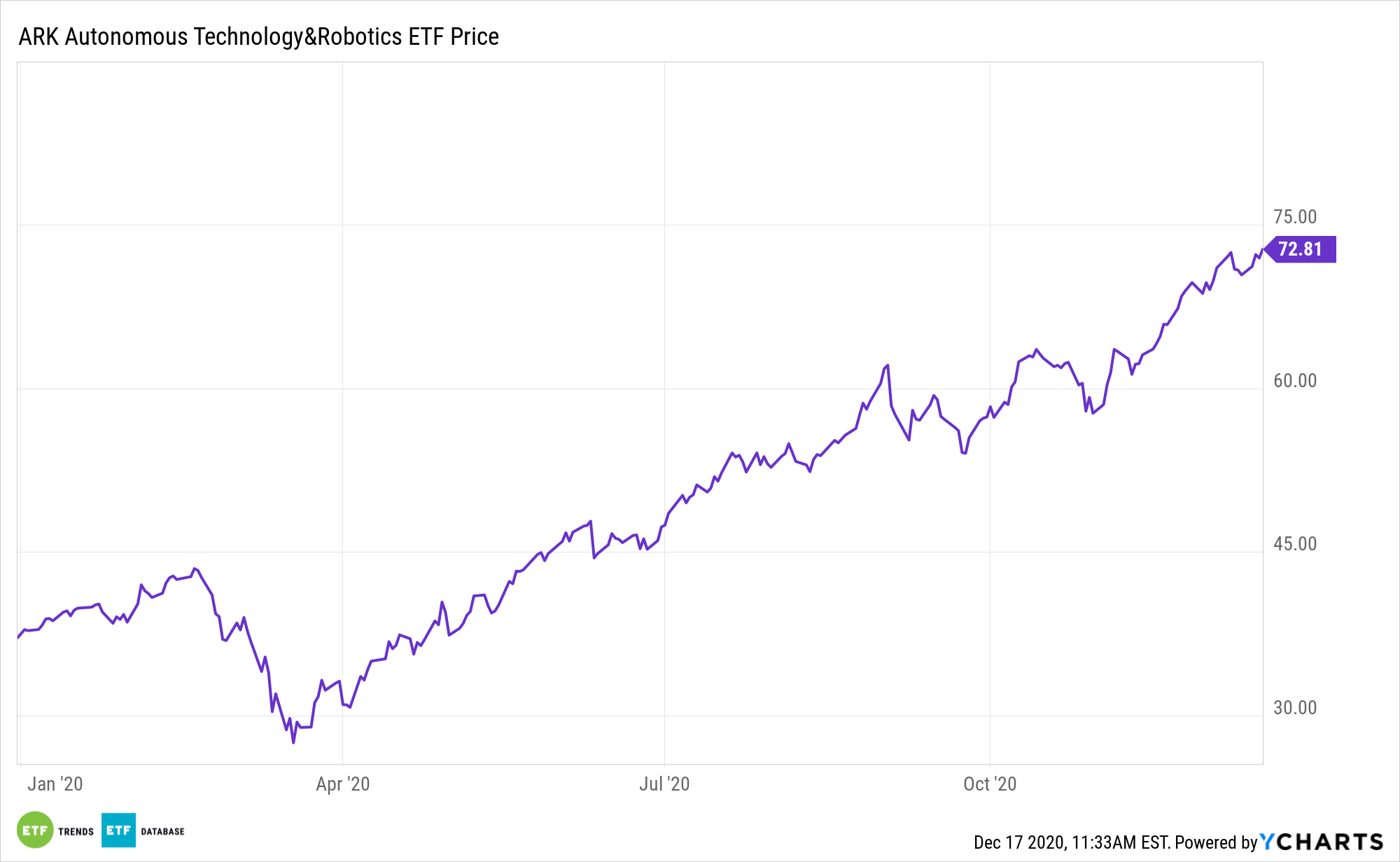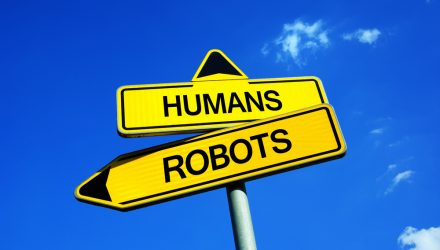The rise of artificial intelligence (AI), commonly referred to as the fourth industrial revolution, carries with it significant investment implications. Investors can get in on the game via a myriad of exchange traded funds, but the ARK Industrial Innovation ETF (NYSEArca: ARKQ) is one of the best.

ARKQ captures the converging industrial and technology sectors, capitalizing from autonomous vehicles, robotics, 3D printing, and energy storage technologies. That wide mandate helps lever ARK to more than just self-driving cars, an important trait at a time of rapid robotics advancements.
“Artificial intelligence (AI) helps companies offer important benefits to consumers, such as health monitoring with wearable devices, advice with recommender systems, peace of mind with smart household products, and convenience with voice-activated virtual assistants,” according to a study conducted by Erasmus University.
ARKQ’s Disruption Is an Enduring Theme
ARKQ addresses a primary concern often associated with thematic ETFs: viability of the underlying theme. Fortunately, AI and robotics are durable trends that still in their early innings. Additionally, the actively managed features exposure to some companies that are the forefront of harnessing AI capabilities, including Tesla.
Robotics and artificial intelligence are making machines smarter and more capable than ever before, allowing robots to take on increasingly sophisticated tasks for faster and more accurate production. Declining computer chip costs and improving connectivity allow for virtually any object to connect to internet-enabled networks, effectively turning anything into a connected device.
“Elon Musk, CEO of electric vehicle giant Tesla (NASDAQ: TSLA), is optimistic about the brand’s upcoming self-driving capabilities, which rely on AI. And Cruise, a majority-owned subsidiary of General Motors (NYSE:GM), has also been using the technology in its fully driverless cars in San Francisco,” reports Investing.com.
For companies that can afford to implement both artificial intelligence and robotics, the dichotomy of disruptive technologies can work hand-in-hand if deployed correctly. As barriers to entry like cost begin to lower for disruptive technologies, more companies could be using both as part of their core businesses, which should only propel disruptive-focused exchange traded funds.
“Various metrics on AI show its potential influence. According to Statista, the growth of the global AI market in 2019 was 54% and AI’s contribution to China’s GDP in 2030 will be 26.1%,” according to Investing.com.
For more on disruptive technologies, visit our Disruptive Technology Channel.
The opinions and forecasts expressed herein are solely those of Tom Lydon, and may not actually come to pass. Information on this site should not be used or construed as an offer to sell, a solicitation of an offer to buy, or a recommendation for any product.

